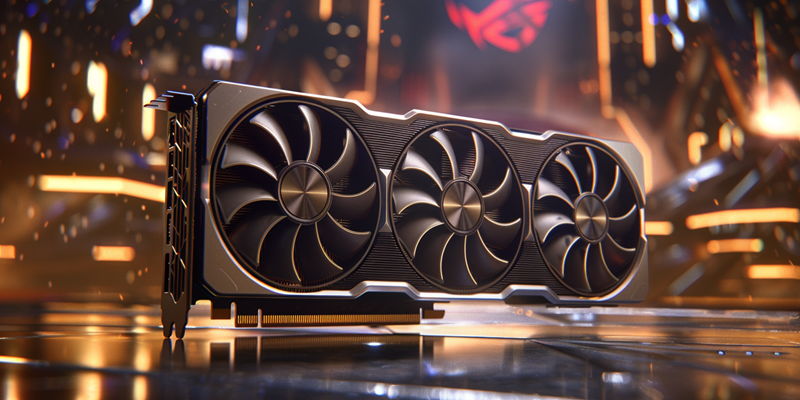Despite U.S. sanctions aimed at curbing the technological strength of Chinese firms, NVIDIA has demonstrated exceptional resilience and adaptability in maintaining and even growing its influence in the AI GPU market in China. This defies initial expectations that the recent restrictions imposed by the Biden administration would significantly disrupt NVIDIA’s dominance in this space. Instead, NVIDIA introduced the ##0 AI GPUs, specifically designed to comply with the new regulations, garnering substantial demand from major Chinese tech giants such as Alibaba and Tencent. This strategic adaptation has not only safeguarded but also expanded NVIDIA’s market presence, showcasing the company’s indispensable role in a rapidly evolving AI landscape.
While the ##0 AI GPUs are stripped-down versions compared to the more advanced models, they have proven extremely effective and popular due to their performance capabilities and compatibility with NVIDIA’s CUDA software stack. CUDA’s industry-wide acceptance among high-end AI technology users in China has solidified NVIDIA’s standing, making it clear that the company’s software ecosystem is just as crucial as its hardware. Overall, NVIDIA’s ability to adapt quickly and provide viable solutions in the face of geopolitical adversity speaks volumes about its tactical ingenuity and market insight.
The Importance of Strategic Adaptation
Following the imposition of U.S. sanctions, which were expected to hinder NVIDIA’s operations in China, the company swiftly pivoted to develop the ##0 AI GPU—a product impressively tailored to meet the new regulatory standards. This strategic move allowed NVIDIA to maintain a significant foothold in the Chinese market, despite facing increased scrutiny and restrictions. The ##0 AI GPUs are not as advanced as NVIDIA’s flagship models, yet they are still highly efficient and capable, ensuring that Chinese corporations like Alibaba and Tencent find them indispensable for their AI needs.
Furthermore, the performance of the ##0 AI GPUs coupled with the industry-standard CUDA software stack has made these GPUs highly coveted among Chinese tech companies. This software ecosystem has become integral to many enterprises focused on high-end AI applications, allowing NVIDIA to continue leading the market despite the limitations imposed by the sanctions. The combination of technology adaptation and software compatibility has fortified NVIDIA’s competitive stance, underscoring the company’s adeptness at navigating complicated regulatory environments while still meeting customer demands.
The Enduring Demand for AI Technology
A significant driver behind NVIDIA’s success is the persistent demand for AI technology in China. Despite Huawei’s efforts to bolster domestic production with its Ascend 910B AI chips, these products primarily cater to low-to-mid-tier inferencing tasks and lack the capacity to meet high-end workloads. Huawei’s aim to sell about 550,000 units of its AI chips by year-end is commendable, but pales in comparison to NVIDIA’s forecast of selling approximately 900,000 units at a price range of $10,000-$13,000 each. This substantial market penetration highlights the enduring preference for NVIDIA’s sophisticated solutions over their domestic counterparts.
In light of these challenges, NVIDIA is projected to generate around $12 billion from China in 2024—a testament to its effective market strategies and high-quality products. While domestic companies like Huawei play a crucial role in the local technology ecosystem, they have not yet reached the level of sophistication needed to fully compete with NVIDIA’s offerings. This has led to a landscape where, despite nationalistic tendencies and governmental support for local firms, NVIDIA remains a dominant player, capitalizing on its advanced technology and comprehensive software support.
Leveraging the CUDA Ecosystem
A pivotal component of NVIDIA’s steadfast market dominance in China is the widespread adoption of its CUDA software stack. This development platform has become an industry standard among many Chinese tech companies, particularly those utilizing high-end #00 GPUs. By integrating the CUDA ecosystem with its hardware, NVIDIA ensures a seamless and efficient development process for AI applications, which is pivotal for companies striving for technological advancement.
This synergy between CUDA and NVIDIA’s hardware offerings has further cemented the company’s market leadership. Chinese companies continue to depend on the reliability and performance of NVIDIA’s products, underpinned by the robust CUDA framework. Consequently, NVIDIA remains not just a hardware vendor but a comprehensive solutions provider that meets the intricate needs of its clients. In the grander scheme of things, this highlights NVIDIA’s innovative approach to addressing market demands while navigating complex geopolitical landscapes, ensuring its sustained relevance and success.
Navigating Geopolitical Challenges
Despite U.S. sanctions intended to limit the technological progress of Chinese firms, NVIDIA has shown remarkable resilience and adaptability, maintaining and even expanding its foothold in the AI GPU market in China. Contrary to expectations that Biden administration’s restrictions would severely impact NVIDIA’s dominance, the company introduced the ##0 AI GPUs. These GPUs were specifically designed to adhere to new regulations and have seen substantial demand from leading Chinese tech companies like Alibaba and Tencent.
This strategic move not only protected NVIDIA’s market share but also enhanced its role in the rapidly evolving AI sector. Although the ##0 AI GPUs are more basic compared to the company’s advanced models, they have gained popularity due to their performance and compatibility with NVIDIA’s CUDA software. CUDA’s widespread adoption among high-end AI users in China has further cemented NVIDIA’s standing, underscoring the importance of its software ecosystem alongside its hardware.
NVIDIA’s agility in swiftly adapting to geopolitical challenges and offering compliant, effective solutions highlights its inventive strategy and deep market understanding.

